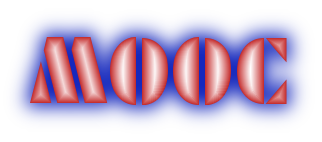200 Learning Tools
 Jane Hart created the Centre for Learning and Performance Technologies (C4LPT) in 2000. In 2007, she compiled her first Top 100 Tools for Learning list. This year the list is at an exhaustive and exhausting 200 tools. She takes votes from learning professionals worldwide (Jane is in the UK.)
Jane Hart created the Centre for Learning and Performance Technologies (C4LPT) in 2000. In 2007, she compiled her first Top 100 Tools for Learning list. This year the list is at an exhaustive and exhausting 200 tools. She takes votes from learning professionals worldwide (Jane is in the UK.)
Jane was surprised that Twitter dropped from #1. As someone who bought Twitter stock at a low point in the hopes of selling it when it was higher after being purchased, I am not surprised.
I like that Jane has also broken down the big list to subsets of tools for Personal and Professional Learning, Workplace Learning and Education.
Even if you are a big user of online tools for learning, there are probably some new tools on the 2016 list or her "Movers and Shakers" list that you have never even heard mentioned.
The top vote getters should be familiar to all educators and I would expect that at least a few of these tools are in any teachers' toolbox by now. Jane has more information on each tool on her site.
Here are the Top 20:
1 - YouTube
2 - Google Search
3 - Twitter
4 - PowerPoint
5 - Google Docs/Drive
6 - Facebook
7 - Skype
8 - LinkedIn
9 - WordPress
10 - Dropbox
11 - Wikipedia
12 - Yammer
13 - WhatsApp
14 - Prezi
15 - Kahoot
16 - Word
17 - Evernote
18 - Slideshare
19 - OneNote
20 - Slack
Full list of 200 at http://c4lpt.co.uk/top100tools/
 A member of my
A member of my 
 Only about half of all students who start college graduate with a bachelor’s degree within six years. It doesn't help that completion rate that the path to degrees is less linear than ever. More than a third of students transfer at least once during their college years, according to the National Student Clearinghouse. Of those, nearly half change institutions more than once.
Only about half of all students who start college graduate with a bachelor’s degree within six years. It doesn't help that completion rate that the path to degrees is less linear than ever. More than a third of students transfer at least once during their college years, according to the National Student Clearinghouse. Of those, nearly half change institutions more than once.